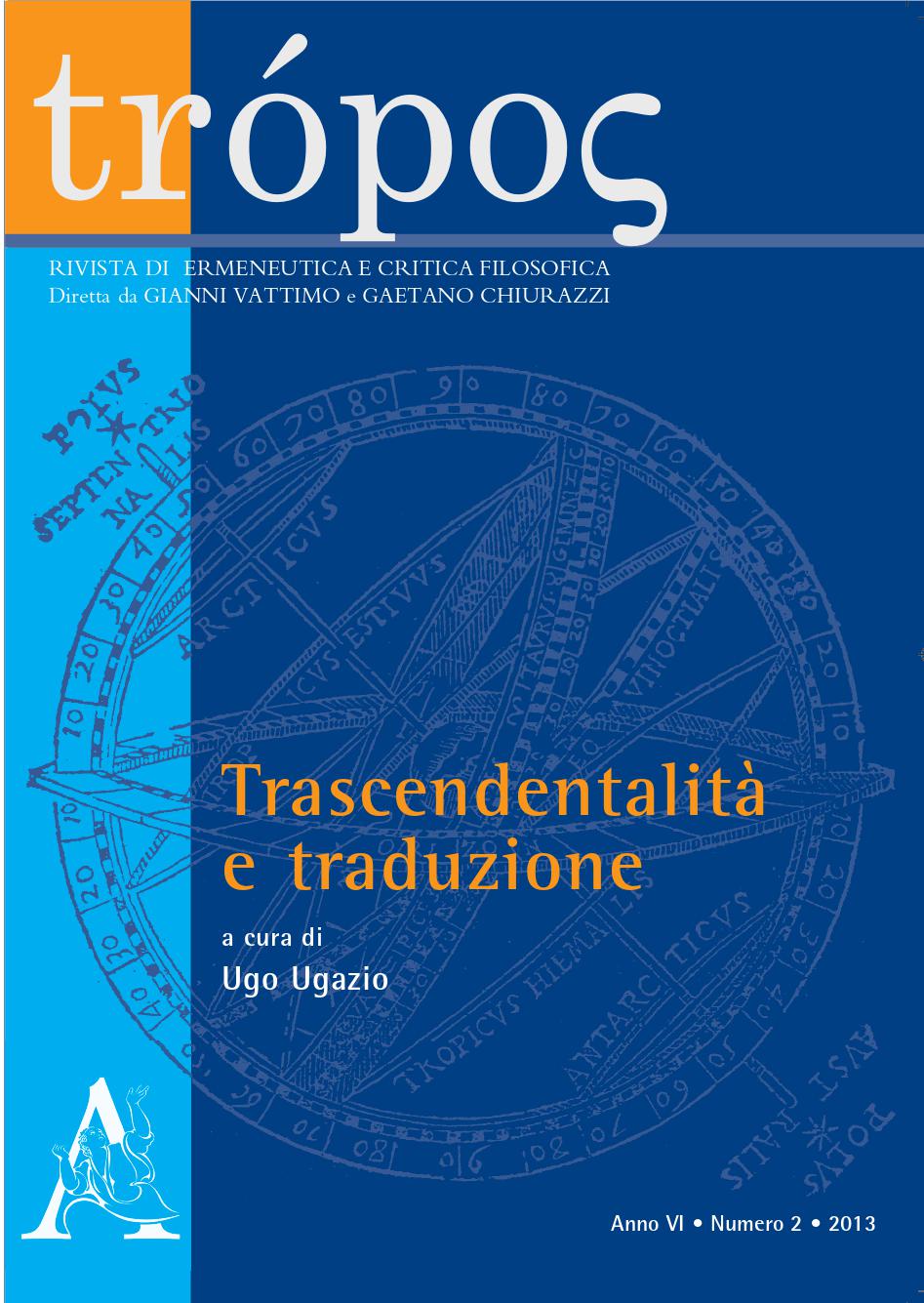Decostruzione, contaminazione ed eccesso del trascendentale in Derrida
DOI:
https://doi.org/10.13135/2036-542X/7786Parole chiave:
Derrida, Transcendental, Contamination, Possibility, UniversalismAbstract
After highlighting the key role played by the issue of transcendental in Derrida's work, this article addresses the various theoretical operations that Derrida performs in order to deconstruct and transform the classical concept of transcendental. 1) The dislocation: transcendental is no longer the subject, but the difference and the trace. 2) The contamination of transcendental and empirical, here exemplified with the problem of history. 3) The argument of "necessary possibility", implying the conversion from "conditions of possibility" to "conditions of impossibility". The latter two aspects allow a comparison with Heidegger: in spite of their closeness, Derrida aims at going beyond the limits of the heideggerian stance regarding the contamination and the concept of origin. 4) The thought of the singular event as what exceeds the conditions of possibility. This latter topic allows highlighting how Derrida does not renounce a need for universality, but, with a reversal of the classical approach, attributes the task of keeping it open to singularity itself.



